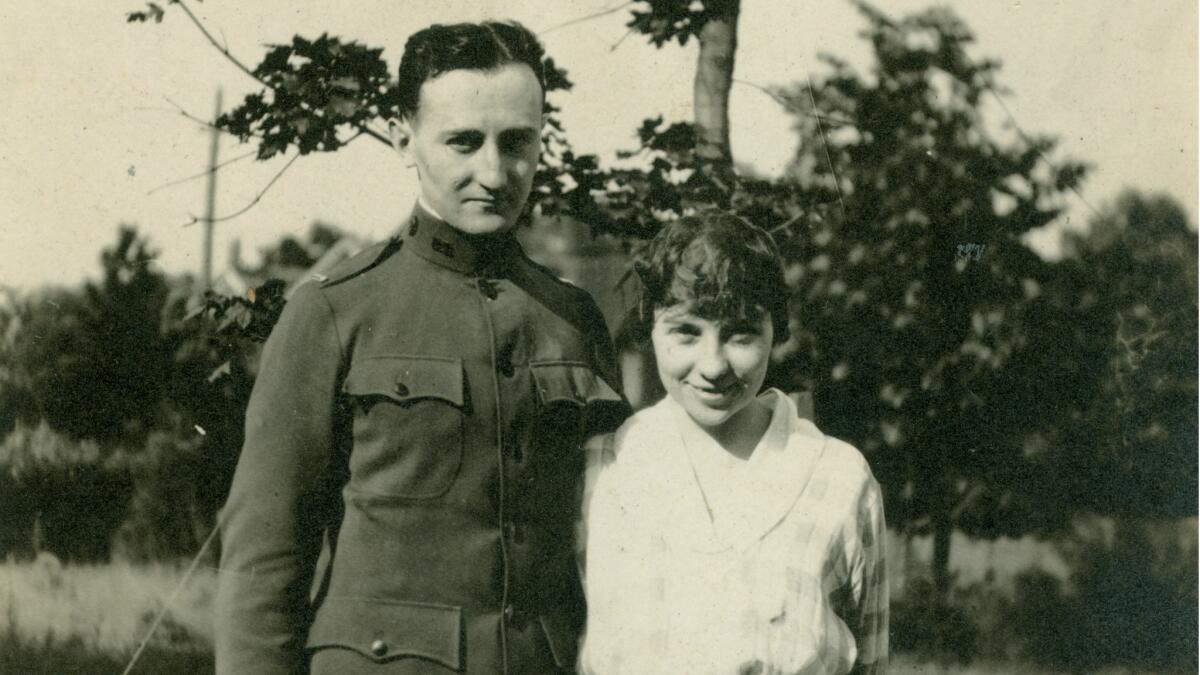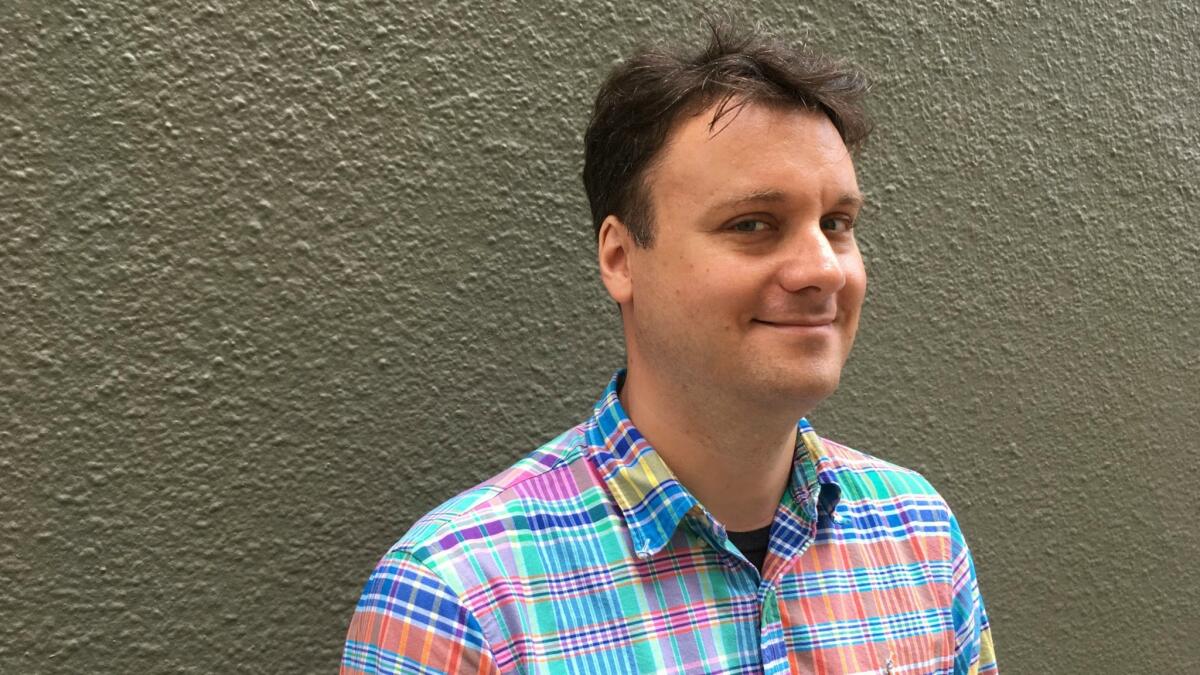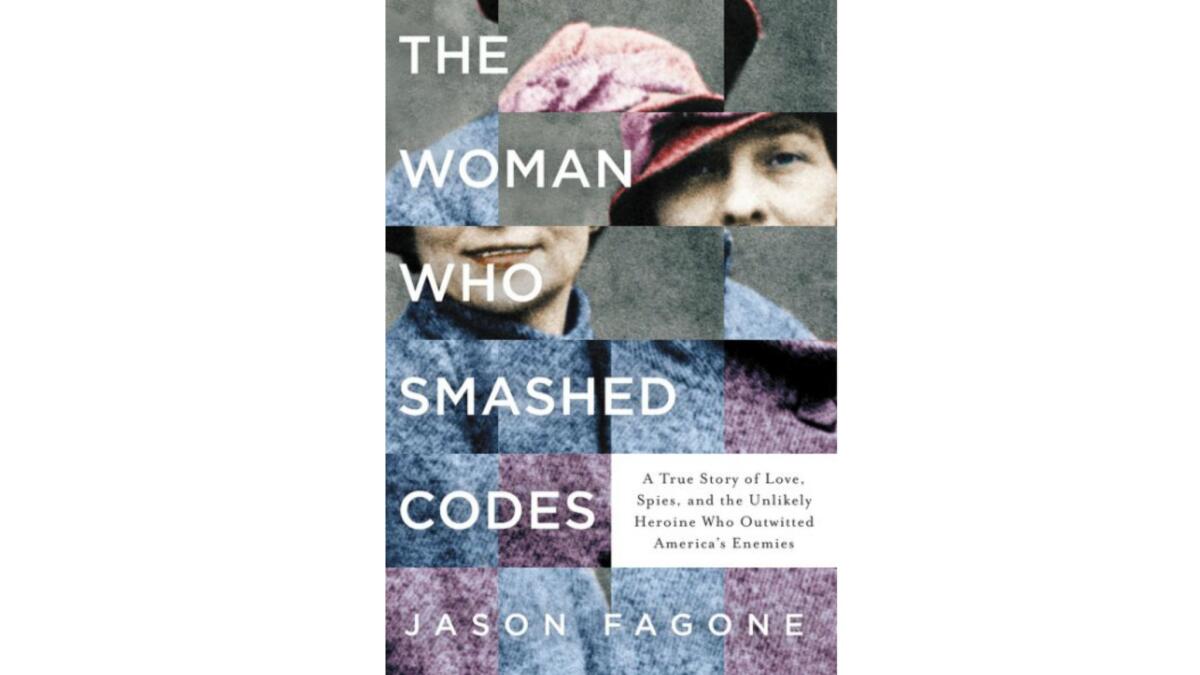Dig into those archives! The story of a lost code breaking woman of World War II
- Share via
In the 1930s, Elizebeth Friedman graced the covers of newspapers and was profiled by Reader’s Digest. She was a tireless and talented code breaker who brought down gangsters and Nazi spies. But after World War II, her story was lost, due partly to forced government secrecy, and also because her husband, William Friedman, was credited for work they did together.
Four decades later, in 2014, Philadelphia-based journalist Jason Fagone stumbled across a mention of Elizebeth while researching the rise of the National Security Agency. Intrigued, he decided to investigate — not realizing what a task he’d undertaken.
After years of archival research wading through recently declassified documents, Fagone pieced together Elizebeth’s life in his new book, “The Woman Who Smashed Codes: A True Story of Love, Spies, and the Unlikely Heroine Who Outwitted America’s Enemies” (Dey Street Books: 464 pp., $27.99).
What emerges is not just Friedman’s forgotten contribution to code breaking but also a fascinating swath of American history that begins in Gilded Age Chicago and moves to the inner workings of our intelligence agencies at the close of WWII. We talked via phone; this interview has been edited.
So much of Elizebeth Friedman’s story intersects with our current moment: citizen surveillance, anti-Semitism, sexism. Did these parallels become obvious to you in the process of working on the book, or only in the last few months?
The book began with the Edward Snowden disclosures. That's when I started reading about the history of the NSA. Like a lot of Americans, I didn't really know much about the NSA. Where did this big intelligence agency come from? How was it born? How did it grow to the size that it did? That led me to William Friedman, and in reading about William Friedman, who's considered the godfather of the NSA, I also happened to read about his wife, Elizebeth Smith Friedman. I looked for more information about her, and there really wasn't that much. There wasn't a book.

What changed?
Her papers have always been there. She died in 1980, and she left 22 boxes of materials to a private library in Lexington, Va. But the files are not annotated, so it's been difficult to know what's inside. The only people who really knew what was inside were the archivists who work at the library, who are wonderful and have taken terrific care of her papers. I started reading her letters, and her voice just leapt off the page. She was so funny and witty and sometimes bitingly sarcastic. Yet there was this mysterious gap in the record between 1939 and 1945. And if somebody has meticulously documented every part of their life, and they were a code breaker in the U.S. government, and if the years 1939 to 1945 are not there, that's kind of a red flag.
What was she up to during this time period, and how long did it take you to piece everything together?
During WWII, she hunted Nazi spies. She worked for the Coast Guard as a code breaker with a team of elite code breakers that she had founded and trained in the 1930s. Working with that team, she monitored, tracked and hunted a number of groups of Nazi spies who were spreading out from Germany into the Western Hemisphere. And once the messages were intercepted, she would look at these garbled fields of text, and she would solve them.
One of my favorite details about this part of the story is that there's a romance novel involved in some of the decryptions.
Yes. “All This, and Heaven Too” by Rachel Field. It's a potboiler about a French governess who was falsely accused of murder and thrown in a dungeon. It was based on a true story. Elizebeth reverse-engineered the Nazi cipher that was based on this potboiler. Her team solved more than 4,000 messages sent by Nazi spies, and then she would give those messages to Allied intelligence services. It ultimately allowed the Allies to track down these Nazi spies on the ground, arrest them and put them in jail, and destroy their spy ring.
Her whole career, she was called in to fix the messes.
— Jason Fagone
How much did you try to learn about code breaking yourself?
I wondered if I was going to be able to understand what she had done, but I ended up taking a lot of encouragement and inspiration from Elizebeth's own writing. All her life, she insisted that anyone could understand codes and ciphers. On top of that, Elizebeth herself was not a mathematician. She was a poet and a literature scholar. And yet she was able to use her abilities to see deeply into this world of secret communication.

You track her rise to fame in the '20s and '30s, when newspaper headlines often put her down for being a woman. How did sexism shape Elizebeth’s career?
All her life, there were men around Elizebeth who got credit for things that she did. Sometimes these were men close to her, like her husband, who just overshadowed her, and sometimes they were men in power like J. Edgar Hoover, who actively stole credit for her achievements. After the war, Elizebeth had to take all of her documents, the proof of her heroism and her contributions to the war effort, mark them classified and send them off to government tombs. Some of her records weren't declassified until 2000. If you go into the National Archives and look at the raw decrypts, they all have this large black stamp at the top that says “Top Secret Ultra.”
What is the most important thing you hope this book will accomplish?
I hope that people enjoy seeing the story of American Intelligence from a new angle. I had always assumed that these large and powerful American agencies — the NSA, the CIA, the FBI — were born in some kind of rational way. But when you start to look at history through Elizebeth's eyes, you realize that the rise of these agencies was very messy. Her whole career, she was called in to fix the messes. That was the word in Washington. When a problem seems hopeless, or when an agency is caught unprepared by a new challenge, send for Mrs. Friedman — she'll fix it. Whenever there's some debate now about whether women can perform at high levels in technical fields, it's absurd. You can just go back and look at the historical record. Women have been doing this high level technical work all along, and Elizebeth is a powerful demonstration of that.
Evans is a freelance writer who lives in New York.

Sign up for our Book Club newsletter
Get the latest news, events and more from the Los Angeles Times Book Club, and help us get L.A. reading and talking.
You may occasionally receive promotional content from the Los Angeles Times.




